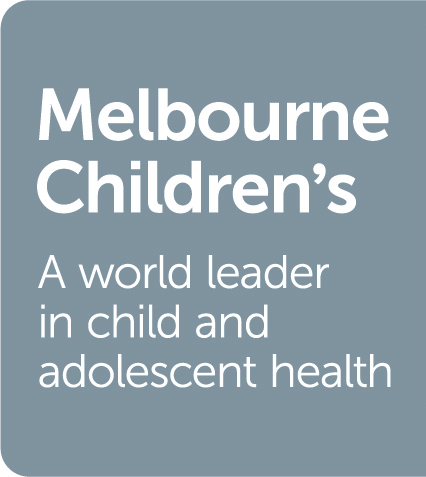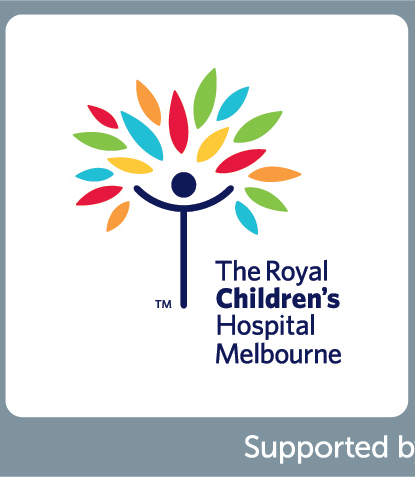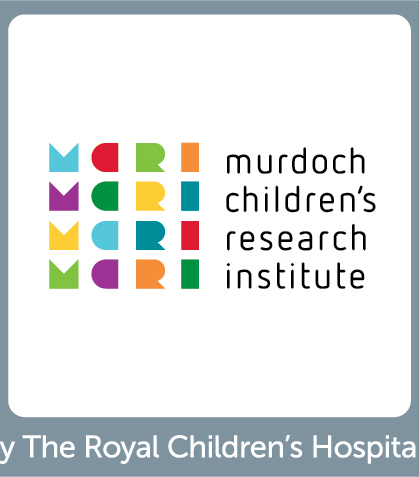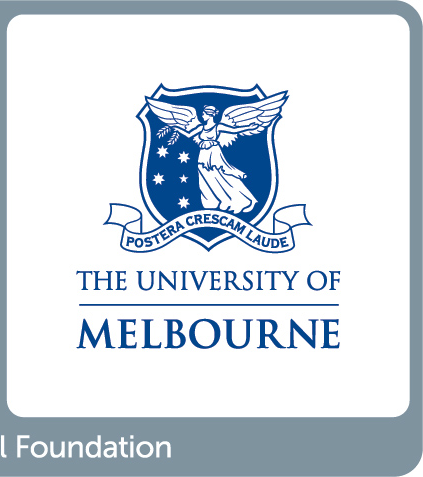Victorian Childhood Hearing Longitudinal Databank (VicCHILD)
The Victorian Childhood Hearing Longitudinal Databank (VicCHILD) is a Victorian register and research databank of children born with permanent hearing loss. VicCHILD ultimately aims to help deaf and hard of hearing children reach their full developmental potentials.
Over 1300 families have already contributed data to VicCHILD. The information collected and stored will: help researchers and health professionals gain a better understanding of the causes and outcomes of childhood hearing loss; help researchers understand why some children with a hearing loss do well, while others face greater difficulties; and improve support and treatment.
The enrolment phase can occur at any age and time. Age-appropriate versions of questionnaires are used, and follow-up questionnaires and assessments are given (where possible) every few years after enrolment.
| Year | 2011-Ongoing | 2012-Ongoing | 2014-Ongoing | 2012-Ongoing | 2020 | 2021 |
|---|---|---|---|---|---|---|
| Phase | Enrolment | 2 year old follow-up | 5-7 year old follow-up | 9-12 year old follow-up | COVID-19 Survey | COVID-19 Follow-Up Survey |
| Age | 3 months - 8 years | 20-30 months | 5-8 years | 9-12 years | 3 months - 18 years | 1-18 years |
| N | 1200 | 405 | 368 | 160 | 493 | 362 |
| RELEVANT LIFECOURSE DOMAINS | Anthropometrics | |||||
| Community environment | ||||||
| Demographics | ||||||
| Education and childcare | ||||||
| Environmental and climate exposures | ||||||
| Family environment | Family environment | |||||
| Health services | ||||||
| Hearing | ||||||
| Medications and supplements | ||||||
| Mental health and behaviour problems | ||||||
| Methodology | ||||||
| Neurocognitive development | ||||||
| Nutrition | ||||||
| Other health information | ||||||
| Peer relationships | Peer relationships | |||||
| Physical activity | ||||||
| Pregnancy and birth | ||||||
| Psychosocial wellbeing | ||||||
| Screen and technology use | ||||||
| Sleep | Sleep | |||||
| Speech and language | ||||||
| Substance use | ||||||
| Study Summary | |
|---|---|
| Study name | Victorian Childhood Hearing Longitudinal Databank |
| Study abbreviation | VicCHILD |
| Current principal investigator/s |
Valerie Sung Melissa Wake |
| Current project manager |
Libby Smith |
| Primary Institution/s |
Centre for Community Child Health Murdoch Children’s Research Institute - MCRI |
| Major funding source/s |
The Royal Children’s Hospital Foundation - RCHF Murdoch Children’s Research Institute - MCRI |
| Study website | https://www.mcri.edu.au/vicchild |
| Key reference for study | Sung V, Smith L, Poulakis Z, Burt RA, Carew P, Tobin S, Wake M. Data Resource Profile: The Victorian Childhood Hearing Impairment Longitudinal Databank (VicCHILD). Int J Epidemiol. 2019 Oct 1;48(5):1409-1410h. doi: 10.1093/ije/dyz168. |
| Study focus |
To provide a register and population-based longitudinal research databank of deaf and hard of hearing children in Victoria, to create a unique resource for advancing research in hearing loss. Specific objectives are to facilitate population-based research (including data linkage) that will describe secular trends in outcomes over time for repeated birth cohorts; support population-based quality improvement activities over time; identify and quantify biological and psychosocial factors that predict outcomes; and facilitate randomised controlled trials of new management and treatment approaches. |
| Sampling frame |
Since 2012, participants have been recruited via the Victorian Infant Hearing Screening Program (VIHSP). Retrospective recruitment was undertaken for babies born in the years 2005 to 2011 and prospective recruitment of babies born from 2012. All families whose child had been diagnosed with a permanent hearing loss were invited. Between 2012 - 2013, families who participated in a previous cohort with congenital hearing loss (SCOUT, born 2003 to 2004) were also invtied to participate. Since 2015, participants have also been recruited via the RCH Clinical Service (Caring for Hearing Impaired Children (CHIC) Clinic). |
| Primary study type | Databank / Biobank |
| Year commenced |
2011 |
| Is this study ongoing? | Yes - the study is ongoing |
| Ongoing recruitment? | Yes |
| Sample size (N) |
1300 as of September 2024 |
| Survey data available? | Yes |
| Imaging data available? | No |
| Linkage to administrative dataset/s? | Yes, linkage to (at least one) administrative dataset completed |
| Biosamples available? | Yes |
| Are data available to others outside study team, with appropriate safeguards and structures in line with the cohort’s ethics and governance processes? | Yes |
| Are there any costs associated with data/sample access for approved requests? | There may be costs associated with access, evaluated on a case by case basis |
| Broadest type of participant consent available |
Unspecified consent (can be used for any future ethically approved research) |
2024
Howell T, Sung V, Smith L, Dettman S. (2024). Australian families of deaf and hard of hearing children: Are they using sign? Int J Pediatr Otorhinolaryngol, 179, 111930. DOI: 10.1016/j.ijporl.2024.111930
Webb E, Hodgson J, Gillespie AN, Jones CA, Poulakis Z, Wong J, Sung V. (2024). Hearing Screening for Congenital CytoMegaloVirus-Exploring Parents' Experiences of Completing Targeted Congenital Cytomegalovirus Screening at the Time of Their Infants' Newborn Hearing Screening. J Clin Med, 13(15). DOI: 10.3390/jcm13154367
2023
Carew P, Shepherd DA, Smith L, Howell T, Lin M, Bavin EL, Reilly S, Wake M, Sung V. (2023). Spoken Expressive Vocabulary in 2-Year-Old Children with Hearing Loss: A Community Study. Children (Basel), 10(7). DOI: 10.3390/children10071223
Carew P, Shepherd DA, Smith L, Soh QR, Sung V. (2023). Language and health-related quality of life outcomes of children early-detected with unilateral and mild bilateral hearing loss. Front Pediatr, 11, 1210282. DOI: 10.3389/fped.2023.1210282
Gillespie AN, Dalziel K, Webb E, Wong J, Jones CA, Sung V, HearS-cCMV Project . (2023). Targeted screening for congenital cytomegalovirus: A micro-costing analysis. J Paediatr Child Health, 59(1), 64 - 71. DOI: 10.1111/jpc.16239
Gillespie AN, Smith L, Shepherd DA, Xu J, Khanal R, Sung V. (2023). Socio-Emotional Experiences and Wellbeing of Deaf and Hard of Hearing Children and Their Parents before and during the COVID-19 Pandemic. Children (Basel), 10(7). DOI: 10.3390/children10071147
Ong JJ, Smith L, Shepherd DA, Xu J, Roberts G, Sung V. (2023). Emotional behavioral outcomes of children with unilateral and mild hearing loss. Front Pediatr, 11, 1209736. DOI: 10.3389/fped.2023.1209736
Sung V, Ching TYC, Smith L, Marnane V, Saetre-Turner M, King A, Beswick R, Iseli CE, Carew P. (2023). Mild matters: trial learnings and importance of community engagement in research for early identified bilateral mild hearing loss. Front Pediatr, 11, 1197739. DOI: 10.3389/fped.2023.1197739
2022
Holzinger D, Dall M, Kiblböck S, Dirks E, Carew P, Smith L, Downie L, Shepherd DA, Sung V. (2022). Predictors of Early Language Outcomes in Children with Connexin 26 Hearing Loss across Three Countries. Children (Basel), 9(7). DOI: 10.3390/children9070990
Lin JJ, Gillam L, Smith L, Carew P, King A, Ching TYC, Sung V. (2022). Mild matters: parental insights into the conundrums of managing mild congenital hearing loss. Int J Audiol, 61(6), 500 - 506. DOI: 10.1080/14992027.2021.1954248
Mardinli A, Weerasuriya R, Gillespie A, Smith L, Sung V. (2022). Accessing hearing-health services for deaf and hard-of-hearing children during the COVID-19 pandemic: Parent and child perspectives. Aust J Soc Issues. DOI: 10.1002/ajs4.231
O'Connor M, Moreno-Betancur M, Goldfeld S, Wake M, Patton G, Dwyer T, Tang MLK, Saffery R, Craig JM, Loke J, Burgner D, Olsson CA, LifeCourse Cohort Investigators . (2022). Data Resource Profile: Melbourne Children's LifeCourse initiative (LifeCourse). Int J Epidemiol, 51(5), e229 - e244. DOI: 10.1093/ije/dyac086
2021
Downie L, Halliday J, Burt R, Lunke S, Lynch E, Martyn M, Poulakis Z, Gaff C, Sung V, Wake M, Hunter MF, Saunders K, Rose E, Lewis S, Jarmolowicz A, Phelan D, Rehm HL, Melbourne Genomics Health Alliance , Amor DJ. (2021). Correction: Exome sequencing in infants with congenital hearing impairment: a population-based cohort study. Eur J Hum Genet, 29(2), 363. DOI: 10.1038/s41431-020-00750-4
Sung V, Olivier N, Shepherd D, Smith L, Carew P, Paxton G, Downie L, Rose E, Dawes K. (2021). Hearing-impaired children attending a tertiary paediatric service: aetiology, comorbidities and health service use. .
2019
Sung V, Smith L, Poulakis Z, Burt RA, Carew P, Tobin S, Wake M. (2019). Data Resource Profile: The Victorian Childhood Hearing Impairment Longitudinal Databank (VicCHILD). Int J Epidemiol, 48(5), 1409 - 1410h. DOI: 10.1093/ije/dyz168
2017
Downie L, Halliday JL, Burt RA, Lunke S, Lynch E, Martyn M, Poulakis Z, Gaff C, Sung V, Wake M, Hunter M, Saunders K, Rose E, Rehm HL, Amor DJ. (2017). A protocol for whole-exome sequencing in newborns with congenital deafness: a prospective population-based cohort. BMJ Paediatr Open, 1(1), e000119. DOI: 10.1136/bmjpo-2017-000119
| Study Contacts | |
|---|---|
| Principal investigator/s |
Valerie Sung Melissa Wake |
| Project manager |
Libby Smith |
| Study Contact |
Ph: +613 9345 4215 |



